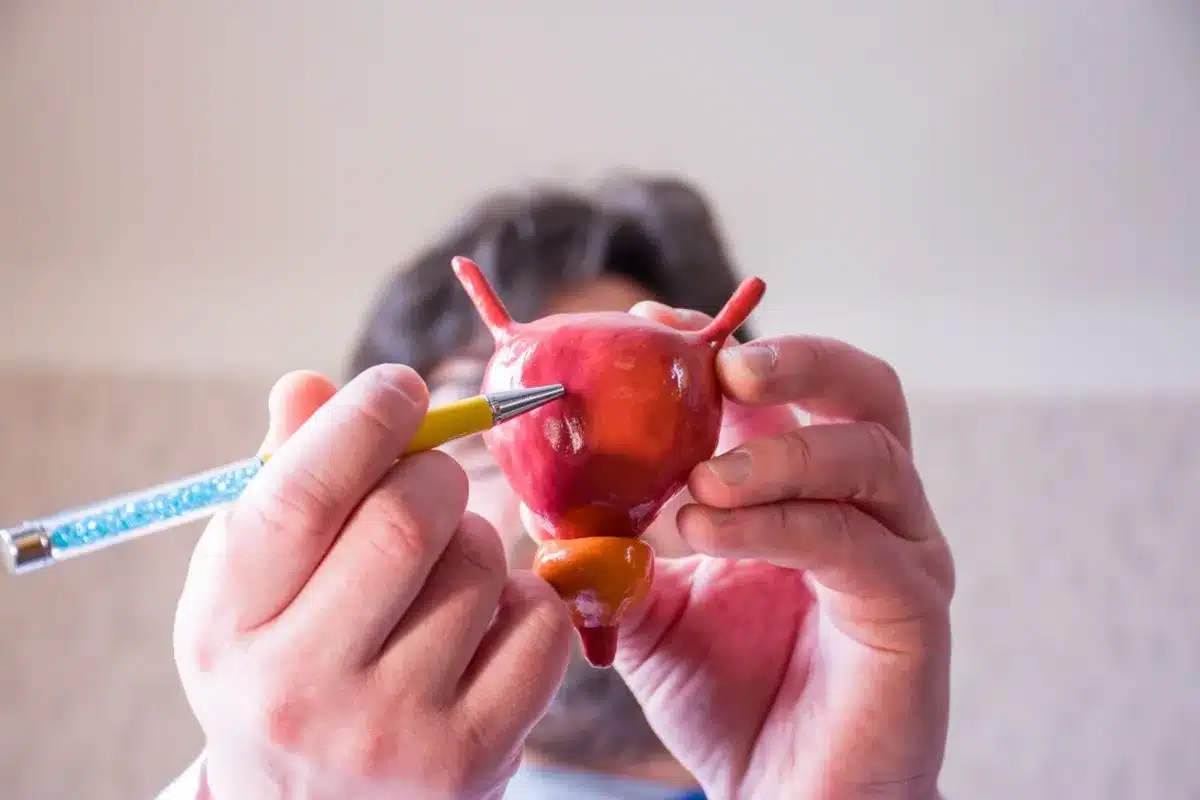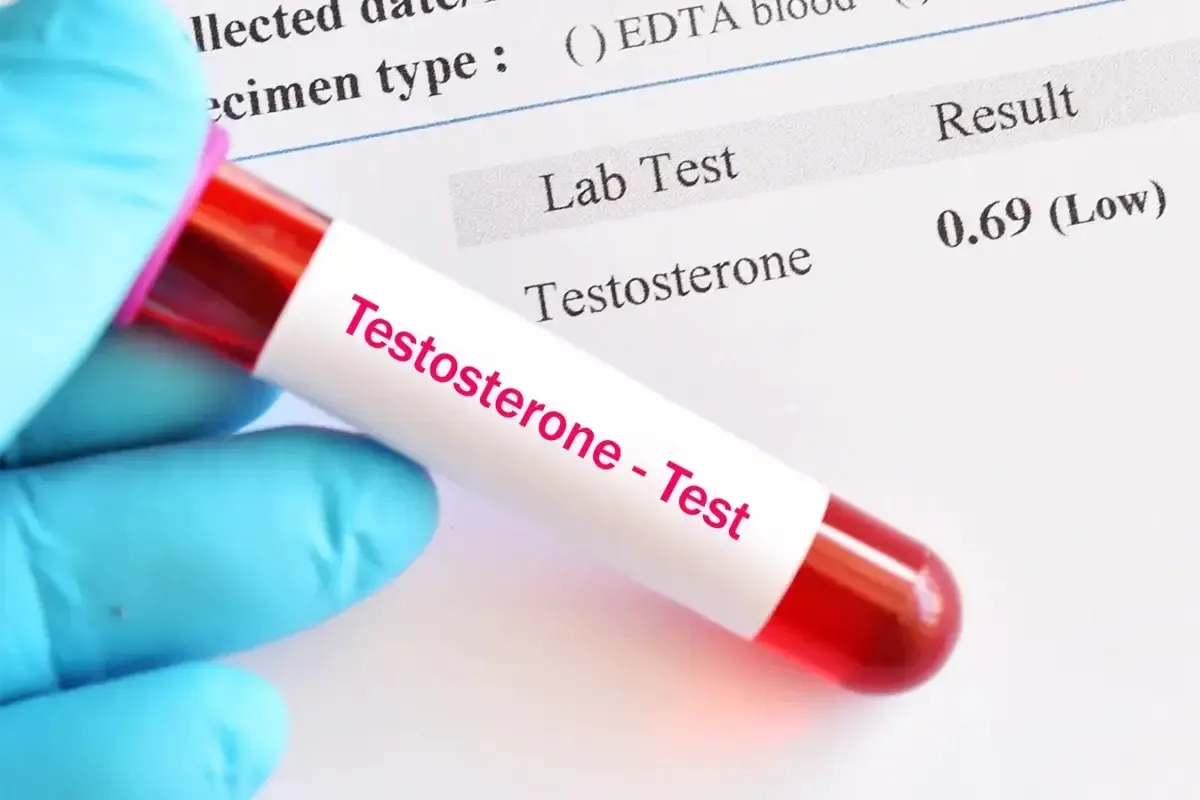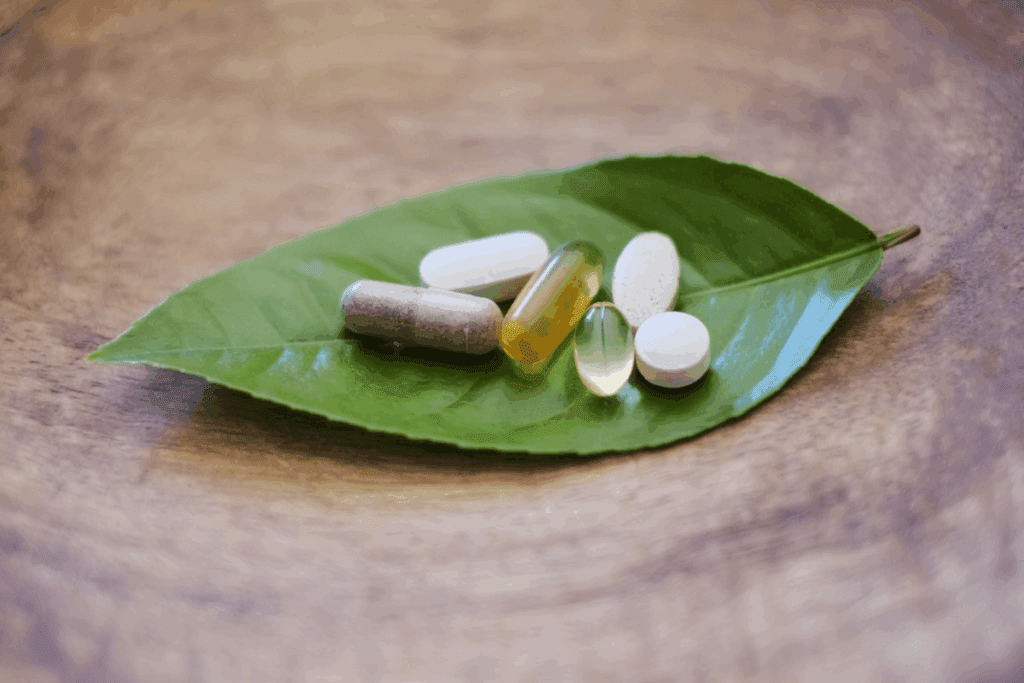
High cholesterol is a big problem, affecting nearly 40 percent of adults globally. It’s a major risk factor for heart disease. Managing cholesterol levels is essential for long-term health.
Many people look for natural ways to support healthy cholesterol. Certain vitamins and natural statins may help maintain optimal levels. For example, niacin (vitamin B3) and vitamin D are among the best vitamins for high cholesterol.
At Liv Hospital, we focus on innovative, patient-centered care. This guide explores natural alternatives for high cholesterol, highlighting the vitamins and natural statins that are beneficial for your heart.
Key Takeaways
- High cholesterol is a significant health concern worldwide.
- Natural approaches can complement conventional treatments.
- Certain vitamins, like niacin and vitamin D, may support healthy cholesterol levels.
- Natural statins offer an alternative to traditional medications.
- A healthy lifestyle combined with natural supplements can help manage cholesterol.
Understanding High Cholesterol and Natural Alternatives
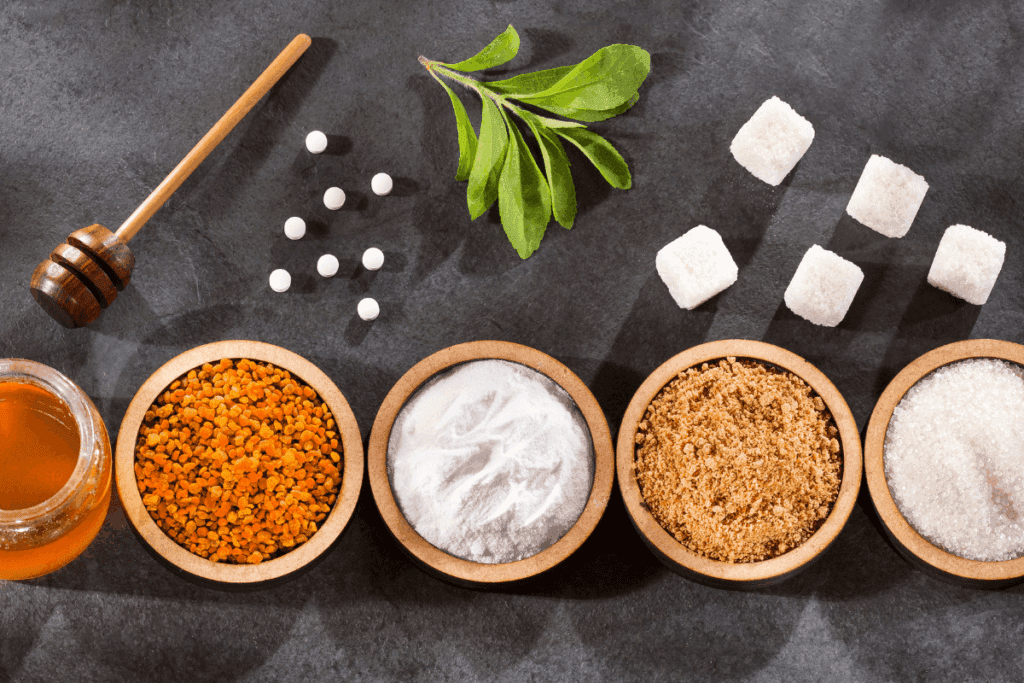
Many people ask about natural options instead of statins for high cholesterol. High cholesterol is a big risk for heart disease and affects millions. Some prefer natural options because of side effects or personal reasons.
The Global Impact of High Cholesterol
High cholesterol is a big problem worldwide. It affects many people and is a major risk for heart disease. It can cause serious health issues like heart attacks and strokes.
Why Many Seek Natural Alternatives to Prescription Statins
More people are looking for natural ways to control their cholesterol. They might be worried about statin side effects or want a more natural health approach. They also might prefer natural products over medicines.
Some natural options like red yeast rice, phytosterols, and flaxseed might help. They could lower cholesterol and reduce heart disease risk.
Consulting Healthcare Professionals Before Starting Supplements
It’s important to talk to a doctor before starting supplements. They can find the best treatment for you. They also make sure supplements won’t harm you or interact with your medicines.
| Natural Supplement | Potential Benefits | Precautions |
| Red Yeast Rice | May lower LDL cholesterol | Can interact with certain medications |
| Phytosterols | Blocks cholesterol absorption | May not be suitable for people with certain health conditions |
| Flaxseed | Rich in omega-3 fatty acids | May cause gastrointestinal side effects |
We stress the need to talk to a healthcare provider about new supplements. This ensures they are safe and right for you.
The Best Vitamins for High Cholesterol: Niacin (Vitamin B3)
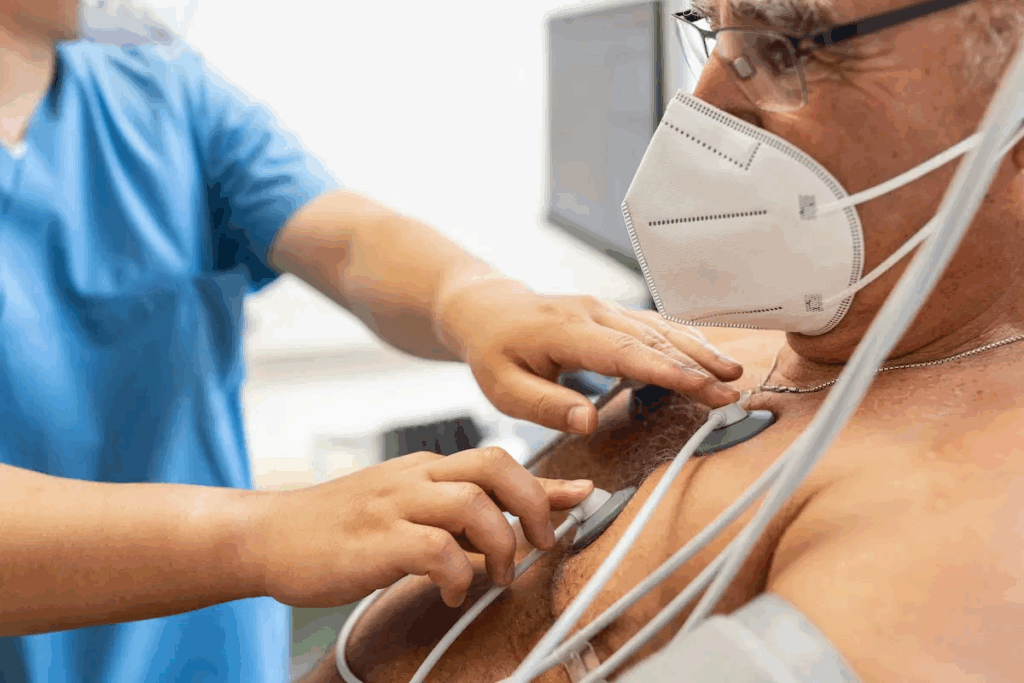
Niacin, or vitamin B3, is key for healthy cholesterol levels. It’s well-studied and plays a big role in improving cholesterol profiles. It’s great at lowering LDL cholesterol.
How Niacin Works to Lower LDL Cholesterol
Niacin stops fats from breaking down in fat tissue. This reduces free fatty acids in the blood. It also lowers triglycerides and LDL cholesterol in the liver. Plus, it raises HDL cholesterol for a better lipid profile.
Immediate-Release vs. Extended-Release Forms
Niacin comes in immediate-release and extended-release forms. Immediate-release niacin causes a quick flush. Extended-release niacin is slower and may be safer but could risk liver toxicity. The right choice depends on your body’s reaction and doctor’s advice.
Recommended Dosage and Possible Side Effects
The best niacin dose for cholesterol is 1 to 2 grams daily. Start low and increase slowly to avoid side effects. Common issues include flushing, itching, and stomach problems. Rarely, it can cause liver issues, so watch your liver health closely.
Research Supporting Niacin’s Effectiveness
Many studies prove niacin’s worth in managing cholesterol. It lowers LDL and triglycerides while boosting HDL. A detailed review of trials backs its use as a helpful addition to statins.
| Study | Dosage | LDL Reduction | HDL Increase |
| Clinical Trial 1 | 1g/day | 15% | 20% |
| Clinical Trial 2 | 2g/day | 25% | 30% |
| Meta-Analysis | 1-2g/day | 18% | 25% |
In summary, niacin is a great vitamin for high cholesterol. It’s a natural option or addition to statins. Knowing how it works, its forms, and side effects helps you use it wisely in your cholesterol plan.
Red Yeast Rice: Nature’s Statin Alternative
Red yeast rice is a natural statin alternative. It contains monacolins that lower LDL cholesterol levels. This traditional Chinese medicine has been used for centuries for its health benefits.
The Science Behind Monacolins
Red yeast rice is fermented with Monascus purpureus yeast. This gives it a red color and produces monacolins. Monacolin K is like lovastatin, a statin drug.
Studies show red yeast rice lowers LDL cholesterol by 15% to 25%. It’s a natural way to manage cholesterol levels.
Comparing Red Yeast Rice to Prescription Statins Like Lipitor
Red yeast rice isn’t a direct substitute for Lipitor. But it works in a similar way. It blocks the enzyme HMG-CoA reductase, which is key in cholesterol production.
A key difference is regulation. Prescription statins are tightly regulated. Red yeast rice supplements can vary in monacolin content.
Quality Concerns and Choosing Effective Products
Choosing a good red yeast rice supplement is important. Look for products from reputable manufacturers. They should follow good manufacturing practices (GMPs) and third-party testing.
- Look for products that specify the amount of monacolin K on the label.
- Choose products that have been certified by third-party organizations such as NSF International or ConsumerLab.com.
- Be wary of products with unusually low prices, as they may contain little to no active monacolins.
Safety Considerations and Proper Usage
Red yeast rice is safe for many. But it’s not for everyone. People with liver disease or taking certain medications should talk to their doctor first.
“As with any supplement, it’s essential to discuss the use of red yeast rice with a healthcare professional, specially if you’re already on statin therapy or have concerns about interactions with other medications.”
Start with a low dose and watch for side effects. Follow the recommended dosage and don’t take more than advised.
Plant Sterols and Stanols: Blocking Cholesterol Absorption
Many people look for natural ways to lower cholesterol. Plant sterols and stanols are key in this search. They help block cholesterol absorption and are known for managing high cholesterol.
Mechanism of Action in the Digestive System
Plant sterols and stanols stop cholesterol from being absorbed in the gut. This is important because it lowers the cholesterol in the blood. They compete with cholesterol for absorption, reducing the cholesterol that goes to the liver.
A study in a medical journal found that plant sterols and stanols can lower LDL cholesterol by 10-15%. This happens when they are part of a diet low in saturated fat and cholesterol.
“The incorporation of plant sterols and stanols into one’s diet represents a practical approach to managing cholesterol levels.”
Food Sources and Fortified Products
Plant sterols and stanols are found in foods like fruits, vegetables, nuts, and seeds. But the amounts are usually too small to make a big difference. So, many foods are fortified with these compounds, like margarines, yogurts, and orange juices. These fortified products can help increase your intake.
- Fortified margarines
- Sterol-enriched yogurts
- Orange juices with added sterols
Supplement Options and Formulations
There are plant sterol and stanol supplements in capsules, tablets, and softgels. When picking a supplement, look at the product’s quality and the maker’s reputation. Good supplements will clearly show how much sterol or stanol they contain.
Effective Dosing Strategies for Cholesterol Reduction
The right dose of plant sterols or stanols for lowering cholesterol is 2 to 3 grams a day. Studies show this amount can lower LDL cholesterol a lot. Being consistent is important; add these compounds to your daily diet or supplements.
Understanding how plant sterols and stanols block cholesterol absorption helps people make better choices. This supports their heart health.
Omega-3 Fatty Acids: Essential Support for Heart Health
Omega-3 fatty acids are key for heart health and lowering heart disease risk. They help by reducing inflammation, improving blood fats, and stopping blood clots.
Fish Oil vs. Plant-Based Omega-3 Sources
There are two main sources of omega-3s: fish oil and plant-based options. Fish oil, from fatty fish like salmon, has EPA and DHA, the best types. Plant-based sources, like flaxseed, have ALA, which the body can turn into EPA and DHA but less efficiently.
Choosing between fish oil and plant-based sources depends on your diet and needs. Vegetarians and vegans might prefer plant-based options. Those looking for direct EPA and DHA might choose fish oil supplements.
Impact on Triglycerides and Overall Cholesterol Profile
Omega-3s greatly affect triglycerides and cholesterol levels. Studies show they can cut triglycerides by 15-30%. They also improve cholesterol by lowering bad cholesterol and raising good cholesterol.
- Reduces triglycerides by 15-30%
- Lowers blood pressure
- Prevents blood clots
- Improves overall cholesterol profile
EPA and DHA: Understanding the Different Types
EPA and DHA are the main omega-3s in fish oil. EPA fights inflammation, and DHA is good for the heart and brain. Knowing the types helps pick the right supplement.
Recommended Daily Intake for Cholesterol Management
The daily omega-3 intake for cholesterol is 1-2 grams of EPA and DHA. Always talk to a doctor to find the right amount for you.
In summary, omega-3s are great for heart health. Knowing about sources and types helps make smart choices for your heart.
Garlic Extract: Ancient Remedy with Modern Research
Garlic extract has been used in traditional medicine for centuries. Recent studies have shown its benefits for cholesterol management. We look at garlic’s active compounds, its forms, and how to use it, including with lemon juice.
Active Compounds and Their Effects on Cholesterol
Garlic has compounds like allicin, which gives it its health benefits. Allicin can slightly lower LDL cholesterol by stopping liver cholesterol production. Studies show garlic supplements can lower LDL cholesterol levels, but the effect is small.
“Garlic’s cholesterol impact comes from its sulfur compounds,” studies say. Garlic extract is a key part of managing cholesterol.
Different Forms and Their Relative Effectiveness
Garlic comes in forms like raw, powder, and aged extract. Each has its own benefits and side effects. Aged garlic extract, for example, is more easily absorbed and has fewer side effects than raw garlic.
- Raw Garlic: High in allicin but can cause stomach issues.
- Garlic Powder: Easy to use but allicin levels vary.
- Aged Garlic Extract: Better absorbed and fewer side effects.
Combining Garlic with Lemon Juice for Enhanced Benefits
Garlic and lemon juice together is a common remedy. Lemon’s acidity may boost garlic’s effectiveness. This mix adds flavor and may help heart health.
“The synergy between garlic and lemon juice may offer a potent natural approach to managing cholesterol levels.”
Potential Interactions with Medications
Garlic extract is usually safe but can affect some medications. It can interact with blood thinners and diabetes drugs. People on medication should talk to their doctor before taking garlic supplements.
In summary, garlic extract is a natural way to manage cholesterol. Knowing its compounds, forms, and interactions helps use it safely and effectively for heart health.
Psyllium Fiber: The Digestive Solution to Cholesterol
Psyllium fiber is a type of soluble fiber that helps lower cholesterol naturally. It does this by binding to bile acids in the digestive system. This binding process helps remove bile acids and reduces cholesterol absorption in the blood.
How Soluble Fiber Binds to Cholesterol
The way psyllium fiber lowers cholesterol is clear. Soluble fiber turns into a gel in the stomach that traps bile acids. These acids are then removed from the body instead of being reabsorbed. This action forces the liver to use more cholesterol to make new bile acids, lowering blood cholesterol levels.
Incorporating Psyllium into Your Daily Routine
Adding psyllium fiber to your daily routine is easy. It comes in powders, capsules, and fiber supplements. To use it effectively, mix the recommended amount with a full glass of water. Take it once a day, best before a meal.
Proper Hydration and Usage Guidelines
Drinking enough water is key when taking psyllium fiber. Drink at least 8 ounces of water with each dose to help it move through your system. Not doing so might cause stomach discomfort or constipation.
Clinical Evidence for Cholesterol Reduction
Many studies have shown psyllium fiber’s effectiveness in lowering cholesterol. A detailed review of these trials found that psyllium supplementation significantly lowers LDL cholesterol. Below is a table summarizing some key findings from these studies.
| Study | Duration | Dose of Psyllium | LDL Cholesterol Reduction |
| Study A | 12 weeks | 10.2 grams/day | 12% |
| Study B | 24 weeks | 15 grams/day | 15% |
| Study C | 8 weeks | 7.5 grams/day | 8% |
By understanding how psyllium fiber works and adding it to your daily routine, you can manage your cholesterol levels naturally.
Berberine: The Promising Natural Compound
Recent studies have shown that berberine can help control cholesterol and blood sugar levels. Berberine is found in plants like Berberis vulgaris (barberry). It’s gaining attention as a natural way to manage cholesterol and diabetes.
Mechanisms for Cholesterol and Blood Sugar Regulation
Berberine works in several ways to affect cholesterol and blood sugar. It boosts an enzyme called AMP-activated protein kinase (AMPK), which is key for metabolism. This helps improve how well the body uses insulin and reduces liver glucose production.
It also lowers liver cholesterol production and increases bile acid excretion. This can help lower bad cholesterol levels.
Berberine’s benefits don’t stop there. It also has anti-inflammatory and antioxidant effects. These can help protect the heart and improve overall health.
Comparing Effectiveness to Conventional Medications
Studies have compared berberine to traditional medications for cholesterol and blood sugar. Berberine can be as effective as metformin in lowering blood sugar. It also helps manage cholesterol by reducing bad cholesterol and triglycerides while increasing good cholesterol.
Key findings from comparative studies include:
- Berberine vs. Metformin: Berberine is as effective as metformin in lowering HbA1c levels in type 2 diabetes patients.
- Berberine and Statins: Some studies show berberine can make statins more effective in lowering cholesterol.
Dosage Guidelines and Possible Interactions
While promising, it’s important to follow the right dosage and be aware of interactions. Dosages range from 500 mg to 1500 mg daily, split into two or three doses. The best dosage can vary based on the individual and condition.
Berberine can interact with medications like blood thinners, diabetes drugs, and blood pressure meds. Always talk to a healthcare provider before starting berberine, even if you’re already on other medications.
Current Research and Future Prospects
Research is ongoing to fully understand berberine’s benefits for cholesterol and blood sugar. Future studies will likely look at long-term effects, best dosages, and combining it with other natural or conventional treatments.
As we look for natural statin alternatives, berberine is a standout. Its ability to manage cholesterol and blood sugar makes it a promising area for further research and use.
Vitamin D: The Sunshine Vitamin’s Role in Cholesterol Management
Research shows that not having enough vitamin D can lead to high cholesterol. Vitamin D, also called the sunshine vitamin, is important for bone health and managing cholesterol. We’ll look at how vitamin D affects cholesterol and why keeping levels right is key.
Connection Between Vitamin D Deficiency and Cholesterol Levels
Studies found that people with low vitamin D have more “bad” cholesterol. This shows vitamin D’s role in how our body handles fats and cholesterol. Not having enough vitamin D might cause cholesterol problems.
Mechanisms Behind Vitamin D’s Impact on Cholesterol
Vitamin D receptors are in places like the liver and fat tissue. These receptors help control how our body handles cholesterol. Vitamin D turns on genes that help with cholesterol.
Optimal Blood Levels and Testing
It’s important to have the right amount of vitamin D for health, including cholesterol. The best range is between 30 and 50 ng/mL. Testing can find if you’re low and help with supplements.
Testing Methods: The most common test is for 25-hydroxyvitamin D [25(OH)D] in blood.
Supplementation Strategies and Dosing
If you’re low on vitamin D, taking supplements is often advised. The choice between vitamin D2 and D3 depends on several factors. Vitamin D3 is usually better at keeping levels up.
- Dosing: Dosage can range from 600 IU to 10,000 IU daily, based on how low you are and how you respond.
- Monitoring: It’s important to check vitamin D levels often to adjust supplements as needed.
Synergistic Effects with Other Nutrients
Vitamin D works well with other nutrients for heart health. For example, vitamin D, omega-3 fatty acids, and magnesium can improve heart health together.
In summary, vitamin D is very important for managing cholesterol. Knowing how vitamin D affects cholesterol, keeping levels right, and using the right supplements can help manage cholesterol levels.
Soy Protein: Plant-Based Protein for Cholesterol Control
Soy protein is rich in isoflavones, which can help lower LDL cholesterol. It’s important to understand how it affects our heart health.
How Soy Isoflavones Affect Lipid Metabolism
Soy isoflavones can change how our body handles fats. They might help reduce the amount of cholesterol we absorb and increase bile acid excretion. This can lead to lower LDL cholesterol levels.
Studies show that soy isoflavones can also boost HDL (good) cholesterol. This makes soy protein a great choice for a heart-healthy diet.
Incorporating Soy Foods into Your Diet
Adding soy foods to your meals is easy and tasty. You can try tofu, tempeh, edamame, and soy milk. These foods are not only protein-rich but also packed with isoflavones.
- Tofu: Use in stir-fries or as a meat substitute.
- Tempeh: Add to salads or use in sandwiches.
- Edamame: Enjoy as a snack or add to soups.
- Soy milk: Use in cereal or smoothies.
Supplement Options and Effective Amounts
If you find it hard to eat soy foods, there are supplements available. Look for products with lots of isoflavones and third-party certification for quality.
The right amount of soy protein varies, but 25 grams a day can help with cholesterol. Always talk to a healthcare professional before starting any new supplement.
| Soy Product | Isoflavone Content (mg) | Protein Content (g) |
| Soy Milk (1 cup) | 20-30 | 8-10 |
| Tofu (3 oz) | 20-40 | 9-10 |
| Tempeh (3 oz) | 40-60 | 15-18 |
| Soy Protein Powder (1 scoop) | 50-100 | 20-25 |
Research on Heart Health Benefits
Many studies have looked into soy protein’s heart health benefits. They agree that it can lower LDL cholesterol and possibly reduce heart disease risk. These benefits come from soy’s isoflavones.
Soy protein is a natural choice for managing cholesterol. Adding it to a balanced diet can help keep your heart healthy.
Conclusion: Creating Your Natural Cholesterol Management Plan
We’ve looked at natural ways to manage high cholesterol, like vitamins and lifestyle changes. It’s key to know how these work and fit them to your needs. This makes your plan effective.
Talking to a healthcare pro about natural cholesterol medicine is smart. They can help pick safe and right options for you. Supplements like niacin and red yeast rice can help control cholesterol. Getting advice from a doctor is important for a plan that’s good for your heart.
With the help of this guide and a doctor’s advice, you can make a detailed plan for your heart health. Adding natural ways to manage cholesterol to your daily life is a good idea. This can help you reach your goal of better cholesterol levels and overall health.
FAQ
What are natural statins and how do they work?
Natural statins are found in nature and help lower cholesterol. They block the enzyme HMG-CoA reductase. This enzyme is key in making cholesterol in the liver. Examples include red yeast rice, berberine, and plant sterols.
Can vitamins help manage high cholesterol?
Yes, some vitamins can help with high cholesterol. Niacin (Vitamin B3) is known to lower LDL cholesterol. Vitamin D also supports heart health and may affect cholesterol levels.
What is the role of omega-3 fatty acids in cholesterol management?
Omega-3 fatty acids, like EPA and DHA, are good for the heart. They lower triglycerides and can improve cholesterol levels. You can find them in fish oil and some plants.
How does psyllium fiber help lower cholesterol?
Psyllium fiber is a soluble fiber that helps remove bile acids. This process reduces cholesterol absorption. It can lower LDL cholesterol levels.
Is red yeast rice a safe alternative to prescription statins?
Red yeast rice has monacolins, similar to statins like Lipitor. But, its quality and safety vary. Always choose reputable brands and talk to a healthcare professional.
Can garlic extract help manage cholesterol levels?
Garlic extract might help manage cholesterol by reducing liver production. But, its effectiveness can change based on the form and preparation.
How does soy protein affect cholesterol control?
Soy protein has isoflavones that can improve heart health. Adding soy foods or supplements to your diet may help control cholesterol.
What is berberine and how does it help with cholesterol?
Berberine is a natural compound that can regulate cholesterol and blood sugar. It’s as effective as some conventional medications.
Are there any possible interactions with natural statins and other medications?
Yes, natural statins and supplements can interact with other drugs. For example, red yeast rice and berberine might affect blood thinners and diabetes meds. Always check with a healthcare professional before starting supplements.
How can I create a natural cholesterol management plan?
To manage cholesterol naturally, learn about supplements and lifestyle changes. Talk to healthcare professionals to make sure your plan is safe and works for you.
What are some natural alternatives to statins?
Natural statin alternatives include red yeast rice, berberine, and plant sterols. These can help lower cholesterol and support heart health.
Can I take natural statins with other cholesterol medications?
Always talk to a healthcare professional before mixing natural statins with other cholesterol meds. This is to avoid bad interactions and ensure safe treatment.
References:
- Martinez-Lemus, L. A. (2012). The dynamic structure of arterioles. Basic & Clinical Pharmacology & Toxicology, 110(1), 5-11. https://pubmed.ncbi.nlm.nih.gov/21989114/


